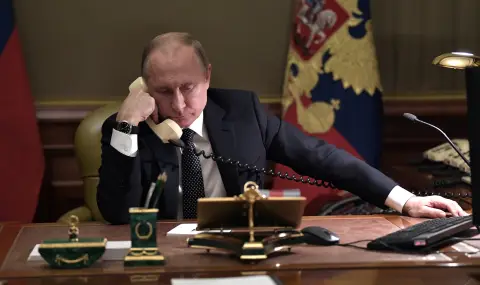Soviet media during the Gorbachev years were full of topics that were previously forbidden. Among them - materials about secret societies, esoteric teachings, “personal energy” and secrets of history. It was these articles that aroused the greatest interest of the Soviet security services. They have always been inclined to believe that everything is “not so simple” and that secret springs and levers determine the direction of movement of politics, economics and public life.
Society enthusiastically plunged into esotericism and mysticism
72-year-old Russian dictator Putin and his inner circle belong to the generation of Soviet people whose youth passed in the late 1960s and 1970s. This time was successfully called “the era of the Brezhnev stagnation”. After the end of the "Khrushchev" era and after the generation that remembered the revolution and the civil war left, the Soviet people quickly lost faith in communism and finally plunged into private life and the pursuit of the so-called deficits - from the meat that was always missing from the stores to American jeans and CDs of western rock bands.
However, people cannot live only with their material interests. Some tried to turn to the religion almost destroyed by the communists, and especially to Orthodoxy as a “traditional Russian faith”. But the main part of society plunged enthusiastically into various types of pagan esotericism (horoscopes, fortune-telling, the “teachings“ of Porfiry Ivanov) and mysticism. The explosion of interest in UFOs, the Bermuda Triangle and the “snowman” it was so big that the Soviet media had to adapt to it. Popular science magazines such as “Science and Life“ and the famous TV show “Obvious and Unbelievable“ dealt in such detail with “debunking myths“ about the otherworldly or mystical properties of hypnosis that sometimes one was left with the distinct impression that this was not a debunking but an occasion to learn about them. These topics were a constant element of everyday conversation, at least in the big cities.
KGB - mysticism and professional suspicion
KGB officers under Andropov could not help but be affected by this fashion. Moreover, it was superimposed on the professional suspicion and clannishness traditional to any special service, which had hypertrophied in the KGB (as well as in the secret police of dictatorships). Yuri Andropov, whom Putin's generation among the KGB officers literally idolized, turned the KGB into an instrument for his rise to the top of the party-state pyramid.
It was Andropov who instilled in his employees a sense of exclusivity, an awareness that they are the only guardians and defenders of the eternal national interests and values. And that they are surrounded only by traitors and enemies - dissidents supported by the CIA, MI6 and, of course, the “almighty“ Mossad.
Andropov's anti-Semitism was of a special kind: he clearly believed that “Jews rule the world” and that one must be very careful with them. And "Mossad" he was always considered in KGB circles as all-powerful and capable of anything.
In search of eternal life?
Putin's views are in all likelihood a product of precisely this environment and era. I remember how many Orthodox believers rejoiced when he began not only to appear regularly at church services (as did Boris Yeltsin), but also to be baptized in front of television cameras (something Yeltsin tried to avoid). “At last, Russia has an Orthodox ruler!“ - this message was and continues to be circulated by the Kremlin media, and at the beginning of the century it was actively propagated among the descendants of the white emigration to the West. Of course, one cannot look into a person's soul, but the endless variations of Putin's story about the cross that survived the fire in his villa show rather a misunderstanding of the basics of faith and an admiration for the cross as a kind of pagan "amulet". and not as a symbol of sacrifice and redemption.
Putin's long-time ally Sergei Shoigu, who also positions himself as an Orthodox Christian, has a strong interest in shamanism, traditional in his native Thebes in southern Siberia, and must have taken a liking to his superior. The inexplicably violent persecution of the anti-Putin shaman from Yakutia, Alexander Gabyshev, also suggests that Putin respects - and fears - shamans.
The head of the Kremlin administration, Anton Vaino, apparently once believed in the possibility of creating a special apparatus to control society. It has long been rumored that Putin and his cronies are actively interested in the problem of life extension.
What Putin believes in
All these facts, rumors and hints make me think that Putin most likely believes in various types of “secret knowledge”, the ability to see the future, and predestination. This, in my opinion, is both a generational trait and the flip side of his and those around him's boundless cynicism. I think they are looking for an answer to the question: why do they have unlimited power and wealth but are not happy? Why are they so powerful and some small number of Ukrainians who are “actually Russians” manage to oppose them? So things are not that simple after all, and maybe only shamans, yogis or the cosmos know the answer.
Russia seems to be ruled by unhappy and rather gloomy people – therein lies another one of her many tragedies.
Author: Konstantin Eggert
